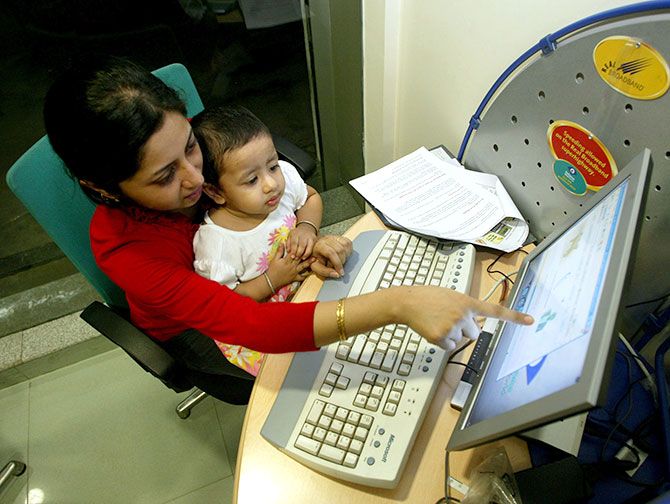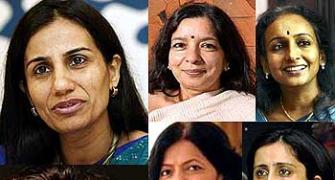A lot of women drop out of higher studies or their professional career because of marriage or motherhood. That's the reason many women in their late twenties and early-thirties leave their careers since they find it difficult to do justice to both the roles.
 “Can I have it all?” is the name of a new book by Anuranjita Kumar, Head of Human Resources for Citi, South Asia.
“Can I have it all?” is the name of a new book by Anuranjita Kumar, Head of Human Resources for Citi, South Asia.
Two powerful women in corporate America – Facebook Chief Operating Officer Sheryl Sandberg and PepsiCo CEO Indra Nooyi -- have answered that question before her.
While Sandberg has said the very concept of 'having it all’ flies in the face of the basic laws of economics and common sense, Nooyi has publicly acknowledged that at some point balancing family and work becomes a zero-sum game and she has chosen work despite a twinge of guilt that was sometimes hard to get past.
So the answer is known and that is, being a working woman means making adjustments, compromises and sacrifices every day and that's inevitable.
In that context, the conclusion of Ms Kumar’s book is not a surprise.
Yet, it’s an extraordinarily interesting book for two reasons – one, the rich anecdotes drawn from the author’s personal life gives an insight into how a highly successful woman professional have managed to cope with the 3Ms – marriage, mobility and maternity.
And two, the book offers some practical advice on how a majority of talented, highly educated women can stop getting lost somewhere on the climb between the graduation podium and the C-suite.
For example, if a woman has chosen to stay on the career path, keeping herself on the edge all the time does not help.
In short, she should stop battling with herself and stop beating herself down for being a bad mother, a bad wife and a bad employee.
Ms Kumar has given examples of how women do immense damage to themselves by being in a permanent state of guilt complex.
One lady, she says, hid her pregnancy at the time of recruitment as she thought she would lose out in the race.
But what she didn’t realise that while she made a short-term gain by getting the job, she lost trust and long-term relationship with the organisation when she broke the news of her advanced pregnancy a couple of months down the line.
There is yet another example of how women can help themselves in their career.
When Ms Kumar resumed work after maternity leave, the organisation tried to help her by offering a relatively less stressful work.
She of course had other ideas – “If I left a four-month old baby at home, the work profile better be worth my time,” she told her employers.
In the process, she grew as a human being – from a nervous mother to a great juggler.
The author also talks about other perception problems that successful women professionals still face.
For example, the persona usually prescribed for a woman is that of polite, gentle, nurturing and certainly not assertive and ambitious.
As a result most women try to conform to this common perception and do a great disservice by underselling themselves.
One of the most interesting accounts in the book is how women in senior management teams behave during meetings.
Some fall back into a comfort zone by being the calm and nurturing team member and thus tend to sit back from key debates as it involves conflicts.
But this approach may boomerang as they won’t be seen as decision-makers.
Some others go the other extreme by trying to be unnecessarily aggressive, thereby alienating their peer group.
The ideal style should be to reflect upon what sits well with you and what is most effective in the circumstances you may be in.
The book is important as India sees the maximum drop in women representation from junior to middle-level positions.
There are many reasons for this - a lot of women drop out of higher studies or their professional career because of marriage or motherhood.
That's the reason many women in their late twenties and early-thirties leave their careers since they find it difficult to do justice to both the roles.
Even high-achieving women who want to return in full force once their maternity leave ends, often find the road back far more treacherous than they had anticipated, as positions disappear and salaries plummet.
“Can I have it all?” recognises that from childhood, females encounter rigid social expectations and unconscious biases, and brings to life these dilemmas and choices, sharing simple but powerful tips that women could use on their own journey.
After all, a war is first won within.
Image: This illustration is used only for representational purpose Photograph: Jayanta Shaw JS/TW/ Reuters










